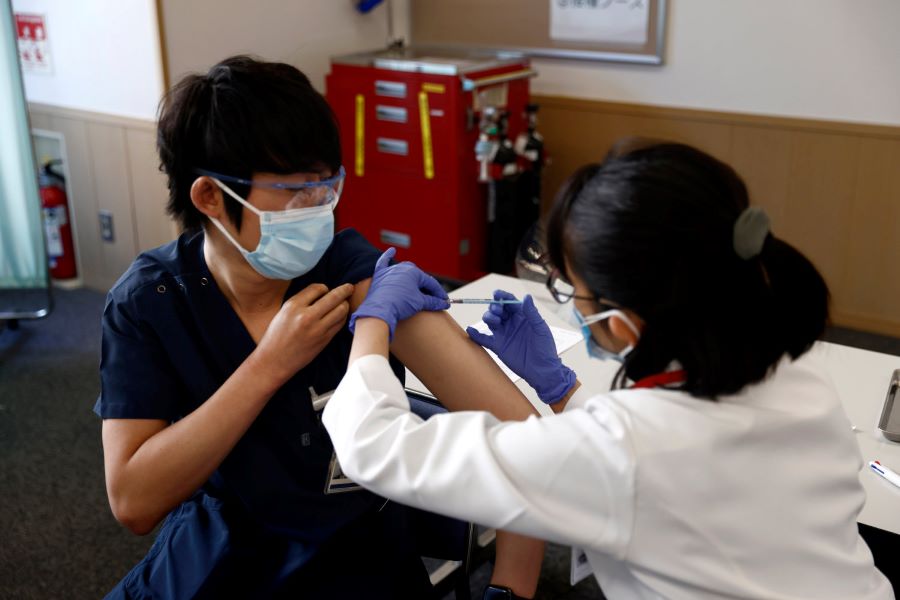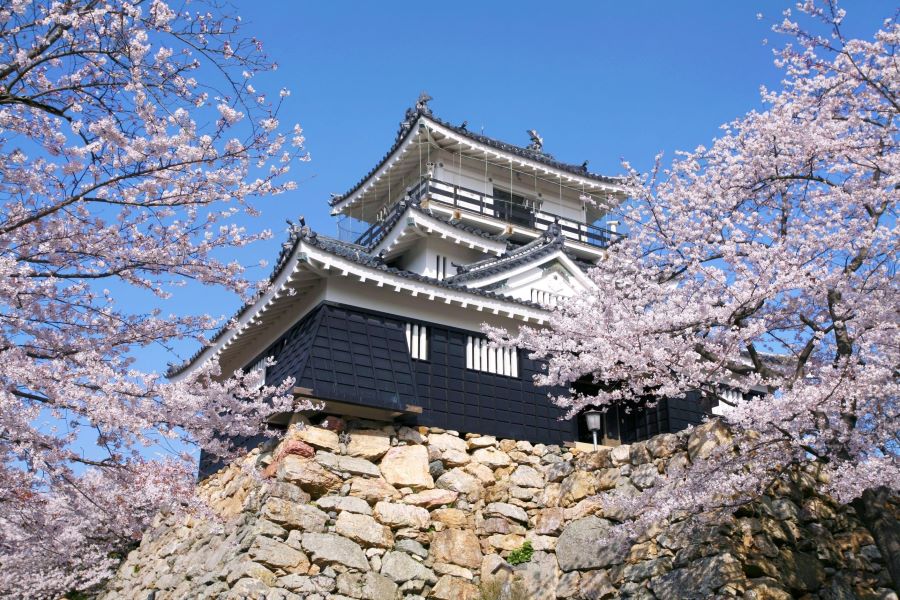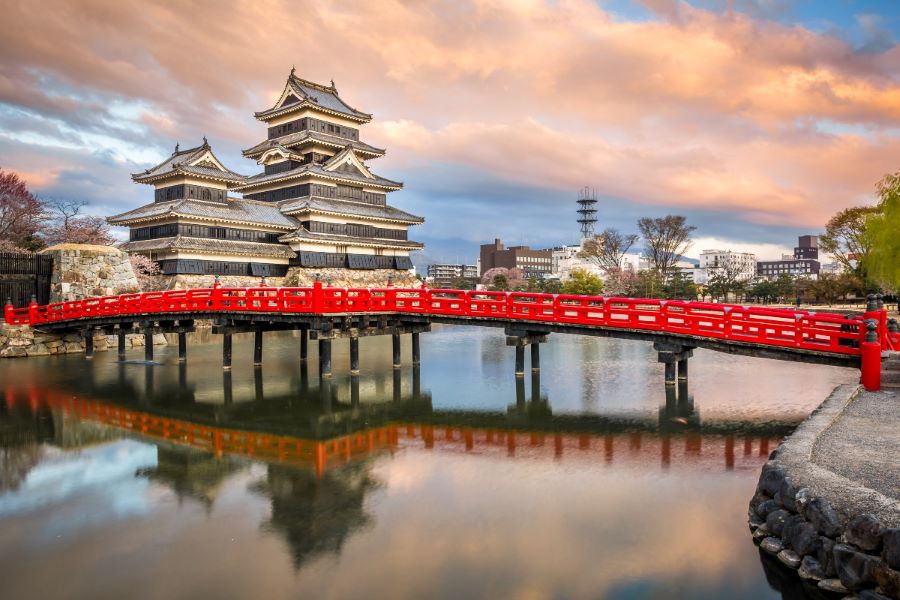Japan launched its coronavirus vaccination campaign in February, months after other major economies started giving shots and amid questions about whether the drive would reach enough people quickly enough to save a Summer Olympics 2020 already delayed by the pandemic.
Japan’s rollout lagged behind other places because it asked vaccine maker Pfizer to conduct clinical trials with Japanese people, in addition to tests already conducted in six other nations — part of an effort to address worries in a country with low vaccine confidence.
Medical workers say vaccinations will help protect them and their families, and business leaders hope the drive will allow economic activity to return to normal. But the late rollout will make it impossible to reach so-called herd immunity in the country of 127 million people before the Olympics begin in July, experts say.
Japan has not seen the massive outbreaks that have buffeted the United States and many European countries, but a spike in cases in December and January raised concerns and led to a partial state of emergency that includes requests for restaurants and bars to close early. Suga has seen his support plunge to below 40% from around 70% when he took office in September, with many people saying he was too slow to impose restrictions and they were too lax.
The country is now seeing an average of about 1 infection per 100,000 people — compared with 24.5 in the United States or 18 in the United Kingdom. Overall, Japan has recorded about 420,000 cases and 7,000 deaths, according to data compiled by Johns Hopkins University.
“It didn’t hurt at all, and I’m feeling very relieved,” he told reporters while he was being monitored for any allergic reaction. “We now have better protection, and I hope we feel more at ease as we provide medical treatment,” said Dr. Kazuhiro Araki, president of Tokyo Medical Center.
About 40,000 doctors and nurses considered vulnerable to the virus because they treat COVID-19 patients who are in the first group slated to be vaccinated using shots developed by Pfizer and its Germany-based partner BioNTech — after the vaccine was authorized Sunday by Japan’s regulator. It requires two doses, though some protection begins after the first shot.
But Japan’s vaccine minister, Taro Kono, defended the delay as necessary to build confidence in a country where mistrust of vaccines is decades old. Many people have a vague unease about vaccines, partly because their side effects have often been played up by media here.
“I think it is more important for the Japanese government to show the Japanese people that we have done everything possible to prove the efficacy and safety of the vaccine to encourage the Japanese people to take the vaccine,” Kono said. “So at the end of the day we might have started slower, but we think it will be more effective.
The development of a Japanese COVID-19 vaccine is still in the early stages, so the country, like many others, must rely on imported shots — raising concerns about supply issues seen in other places as producers struggle to keep up with demand. Suga on Wednesday acknowledged the importance to strengthen vaccine development and production capability as “important crisis management” and pledged to provide more support.
To get the most from each vial, Japanese officials are also scrambling to get specialized syringes that can draw six doses per vial instead of five by standard Japanese-made syringes.
After the front-line medical workers will come inoculations of 3.7 million more health workers starting in March, followed by about 36 million people aged 65 and older beginning in April. People with underlying health issues, as well as caregivers at nursing homes and other facilities, will be next before the general population receives its turn.
Some critics have noted the vaccination drive — which requires medical workers to be carried out — adds to their burden, since Japanese hospitals are already strained by the daily treatment of COVID-19 patients. There’s an added worry that hospitals will have no additional capacity to cope with the large number of overseas visitors the Olympics would involve.
Japan Shore Excursions will give you the latest updates about the Covid-19 and be your companion on your day tours to Japan.




